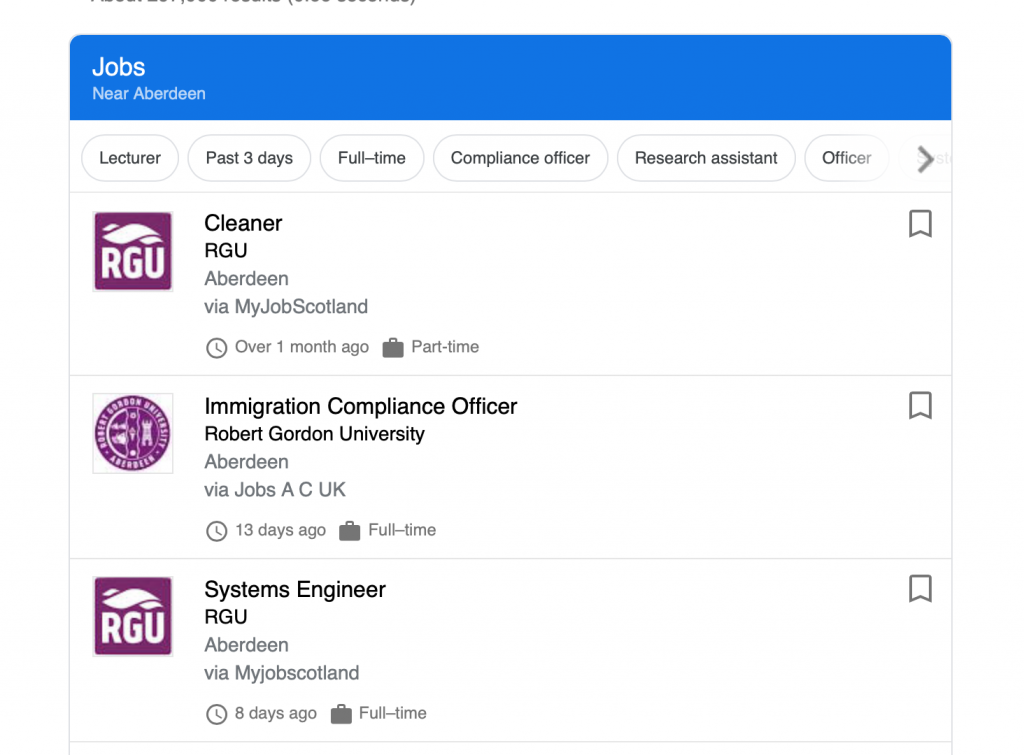 Last year, we saw the introduction to the UK of Google for Jobs (GfJ) and wrote a blog about it, finishing it with the words “Watch, as they say, this space…”
Last year, we saw the introduction to the UK of Google for Jobs (GfJ) and wrote a blog about it, finishing it with the words “Watch, as they say, this space…”
At that time, the job-boards saw GfJ as a chance for them to regain ground lost to Indeed – the dominant player in that field. There were many bullish remarks from job-board execs about how, having signed up to new partnerships with GfJ this move was just the shot in the arm their industry needed. However, some experienced commentators noted that GfJ might start charging once it had established market dominance and that the job-boards- especially the generalist ones and aggregators – were deluding themselves if they thought that Google was not using them for short/medium-term gain…
Consequently, it was instructive to read an article in the Telegraph’s business pages (14thAugust), headlined, “Google exploiting search monopoly to ‘dominate’ job recruitment sector, industry warns.”
This article described how 23 job-boards have written to the EU competition commissioner, accusing Google of “imposing anti-competitive pressure using its new Google for Jobs feature.” The signatories to this letter “claim the move is a ‘ploy’ to gain market share and then change its business model to add paid for links. The signatories claimed it represents a ‘predatory offer’.” Ironically, some of those job-boards who sent this letter were those who signed up to the GfJ service.
Why does this matter? Simples, to coin a phrase. Where and how candidates access information about job adverts is very important, not just to professional recruiters like us, but to the hundreds of SMEs in north-east Scotland who need to buy “distress purchase” hiring campaigns each year as and when people give notice of their intention to quit. If the job-boards wither on the vine and Google becomes dominant (along with Indeed), then the market will have changed drastically. Oligopolies are not good for business in general and certainly not for recruitment. While RGU is fortunate in that our jobs are carried on www.myjobscotland – which is in a strong position as a specialist job-board – most other recruiters don’t have that option.
Such is Google’s power, that getting a ranking for your website on Google is vital, but if this extends to individual jobs, then the small players – and even some quite large companies – will struggle to do so, unless, of course, they pay for it, as companies do now with Google Ads to achieve a page one position in searches. Is getting to the same position with recruitment ads Google’s intention all along?
Julie Skinner
Resourcing and Benefits Specialist, RGU

